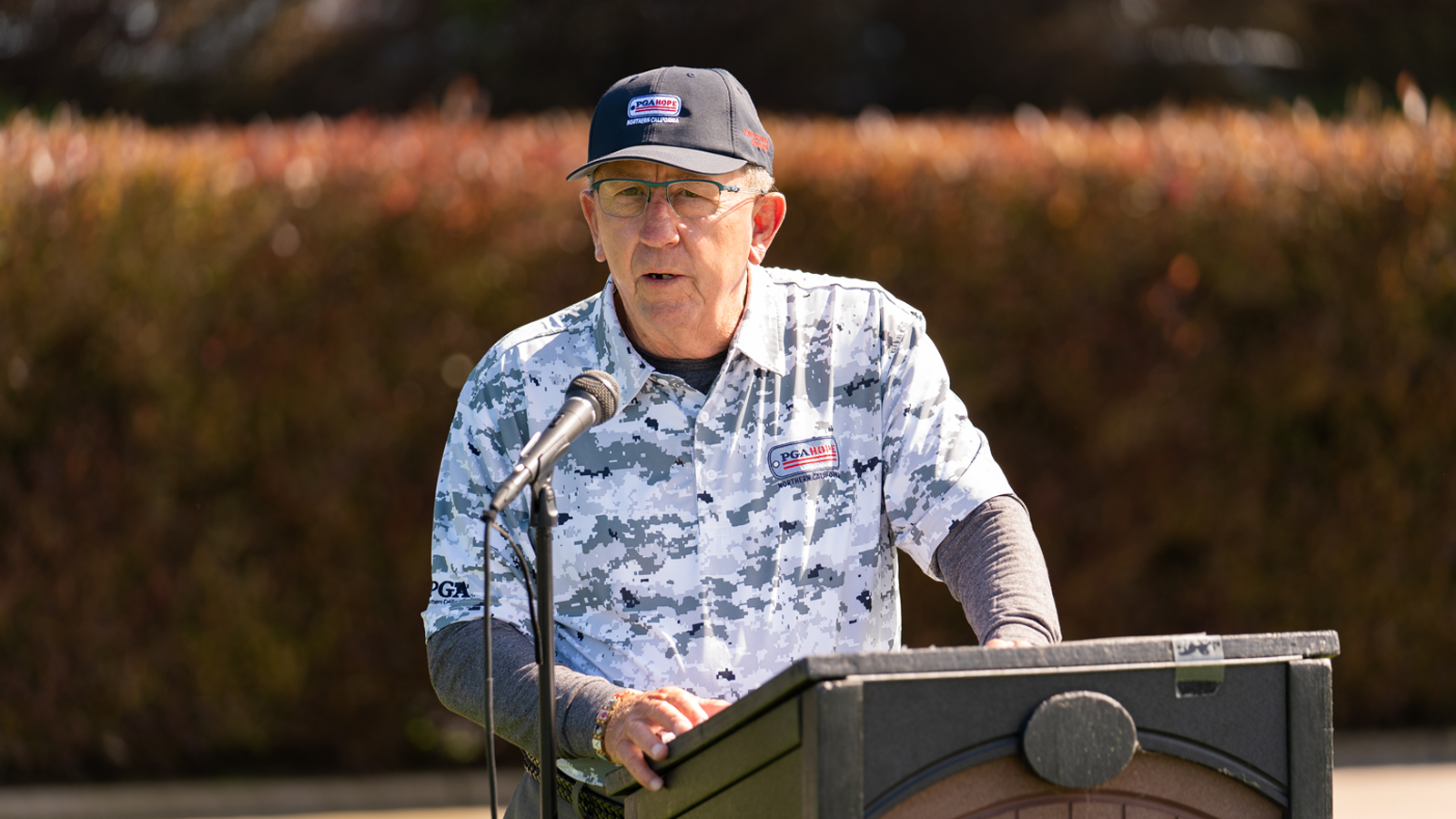Game Changers
From Darkness to Light: Bob Epperly's PGA HOPE Journey
By Matt Adams
Published on

Golf means many different things to many different people. For some it’s a hobby, for others an escape. For a fortunate few it’s a career.
In rare instances, though, it’s more than any of that: It can mean the difference between life and death.
Bob Epperly, PGA, has seen it firsthand. Over the past seven years he’s mentored hundreds of men and women through the PGA HOPE (Helping Our Patriots Everywhere) program, one of the PGA of America’s community outreach arms aimed at helping U.S. veterans with physical and mental wounds find healing through golf. In many cases the game is a lifeline for these brave warriors.
One story Epperly tells is about a Vietnam veteran who pulled him aside at one HOPE session. The man told him, “Before I came here I had not heard the birds chirp for two years, I had not smelled cut grass in two years and I had not seen the sun in two years except when going to the doctor.”
That veteran, like so many others whom Epperly has met, struggled mightily with PTSD. For decades he threw himself into his work to suppress the negative emotions, but after retiring he was left without a coping mechanism. Golfing with other veterans gave him a reason to get out of bed and offered at least some respite from the painful memories.
“There’s not a dry eye when a man or a woman tells me those stories,” says Epperly. “They’re sharing deep, deep feelings. You can’t understand it until you stand there and experience it.”
Perhaps one reason why veterans feel they can open up to Epperly is that he knows their sacrifices. He’s a veteran himself, having served in the California Army National Guard. His familial connections to the military also run deep. His brother served in Vietnam, his father fought in World War II and his grandfather saw action in World War I.
Another reason is that Epperly is a patient, caring and skillful teacher, one who goes to great lengths to make adaptations for his HOPE students so that anyone, regardless of circumstances, can enjoy the game of golf.
If a participant has a prosthetic leg, for instance, Epperly will recalibrate his or her swing to incorporate more of the wrists and elbows. If someone uses a wheelchair, Epperly can fit that player with a shorter club and raise the ball up on a high tee so that it can be hit from a seated position. When getting the ball down the fairway is an issue, Epperly might rethink the game completely and have those players aim at short-distance targets that he constructs. No matter the challenge, there’s always a solution. But golf is only part of the equation.
“The camaraderie [between the veterans] is by far the No. 1 commodity for success,” Epperly says. “Golf is the entry point, but it’s really about the camaraderie.”
That’s why Epperly and his HOPE partner in the Northern California Section, Suzy Schneider, have worked with courses in their region to establish play days reserved for veterans, so that they can maintain those relationships well beyond the six-week HOPE sessions.
“If you can get a veteran to attend the HOPE program for a week or two, and they see it’s a comfortable, reliable and safe place for them to come, they’re hooked,” says Epperly. “Not everyone lasts, but it’s shocking to me how low the drop rate is.”
That hook, as Epperly puts it, goes both ways. His message to other PGA professionals is this: Consider giving of your time and talents to PGA HOPE, because once you see a veteran who has been in a dark place smile on a golf course, it’s more than worth the time and effort.
“There are 22 veteran suicides a day,” Epperly says, quoting a grim national statistic. “I don’t know how many we in our program have saved, if ‘saved’ is the right word, or helped or given something do, but I do know the ones who have talked to me, it’s a similar story. HOPE has given them value again.”